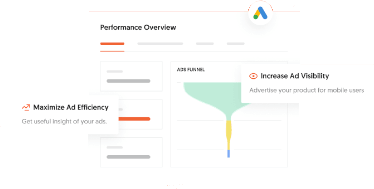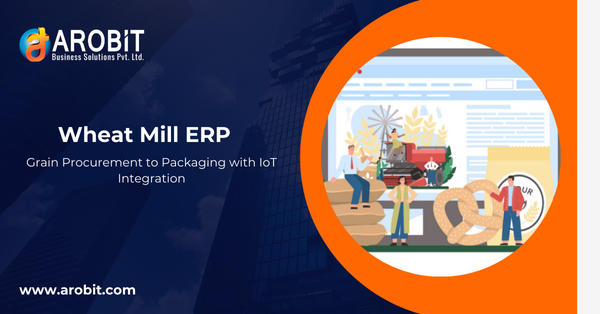You are reading this article because you understand the importance of CRM. And now that you realize the need for a customized solution, you want to build a custom CRM system for your business. By doing so, you will be a part of the 91% of companies who revealed that CRM systems improve their customer retention rates. Like you, most businesses realize the need for a customized solution. A custom CRM development has become a potential alternative to fulfil the requirements of a business.
Importance of Custom CRM Systems in Enhancing Customer Experience
Let's have a quick recap, shall we?
So we know how CRM systems are built to manage a company's relationships and interactions with both existing and potential customers. They analyze customer data to strengthen relationships, prioritize retention, and drive sales growth, leveraging insights from past interactions to enhance business outcomes.
To keep it short, simple and precise, here’s the importance of CRM in enhancing customer experience:
- Personalization: By collecting and analyzing customer data, enterprises can tailor their services and communications to individual preferences.
- Smooth Communication: In CRM systems, communication between teams and clients can be carried out smoothly to ensure that one agrees with the other.
- Data-Driven Decisions: Robust access to analytics helps in arriving at informed decisions based on customer behaviour and feedback.
Overview of Custom CRM System and Its Benefits
So a custom CRM system will definitely help you but… how?
Custom CRM development involves creating a tailored CRM system designed specifically to meet unique business needs.
Some of the benefits it presents are:
- Tailored Features: Custom CRMs provide businesses with the opportunity to select functionalities that fit their specific processes.
- Enhanced Security: A custom solution allows an enterprise to install security within an application according to industry requirements.
- Cost Efficiency: The initial cost may be higher, but custom CRMs can be money-savers in the long term by not having subscription fees like with pre-built solutions.
Understanding CRM
Lets see if you are doing your homework- Define CMR!
CRM is a powerful tool designed to help businesses manage and nurture their relationships and interactions with both existing and potential customers. The goal is simple: improve business relationships to grow your business.
If this was your answer, good job!
Key Functionalities of CRM Systems
Here is a list of key functions of CRM systems you want to remember-
-
Sales Module:
- Customer Management: It manages customer information in a very organized manner.
- Sales Analytics: Analyzing sales data to identify trends and unlock opportunities for growth
- Forecasting: Estimation of sales for the future period by taking the help of historical data.
-
Marketing Module:
- Campaign Management: planning and execution of marketing campaigns.
- Customer Segmentation: Provides segmentation of customers for focused marketing campaigns.
-
Customer Support Module:
- Help Desk: Manages customer queries and service requests.
- Service Analytics: Gauges the performance of services to maximize customer happiness.
Types of CRM Solutions
There are numerous CRM solutions that businesses can look at based on requirements:
- Pre-built CRMs: Subscription-based systems offered by software vendors like Salesforce, Zoho, and Zendesk are ready to be used but uncustomized.
- Customized CRMs: These are not very flexible but rather a form of third-party solution. They might not quite fill one's specific needs.
- Custom CRMs: Designs that come in as tailored pieces providing distinct features without ongoing subscription fees, enhancing security and control over data.
Benefits of Custom CRM Development
Investing in custom CRM development offers several advantages:
- Custom features: Companies can design features that meet their specific business requirements.
- Better data security and compliance: Customized solutions can provide more rigid security measures, which can be more specific to certain industry requirements.
- Long-term cost benefits: Although the upfront cost may be high, savings from subscription fees that are incurred every year will save a lot of money in the long run.
Disadvantages of Custom CRM Development
Although it has its advantages, custom CRM development also has disadvantages:
- More expensive to establish: A customized solution usually needs a lot of investment initially compared to a non-customized one.
- Responsibility for Maintenance and Updates: A business is responsible for ongoing maintenance and updates, which can cost more.
The Custom CRM Development Process
Creating a custom CRM involves a carefully planned process to ensure the final solution is perfectly tailored to meet the unique needs of your business. Each step is important for successful implementation and user adoption.
Needs Assessment
- Identify Pain Points: Engage with stakeholders to understand challenges with existing systems, such as data silos and inefficient communication.
- Define Business Goals: Clearly outline objectives for the new CRM, like improving customer retention or streamlining sales.
- Gather User Feedback: Involve end-users to gather insights on valuable features, ensuring the CRM meets practical needs.
Feature Specification
- Create a Feature List: Collaborate with stakeholders to compile essential features like lead management and reporting dashboards.
- Prioritize Features for MVP: Determine essential functionalities for a Minimum Viable Product (MVP) to launch quickly and gain user feedback.
Selection of Development Partner
- Evaluate Experience: Select a CRM development company with an established track record and good word of mouth from previous clients.
- Technical Skills: Assess whether the team has experience with relevant technologies and platforms.
- Communication: Choose a partner who values open communication and updates.
Project Planning
- Roadmap: The project roadmap describes key milestones, deadlines, and resource allocation.
- Risk Management: Early identification of possible risks and planning for their reduction.
Design Acceptance
- Wireframes and Prototypes: Create wireframes to give an idea about how the users will interact. Test with the stakeholders for more reviews.
- User Experience: Focus on good navigation, accessibility features, and user adoption.
Development and Testing
- Agile Methodology: Applying Agile in iterative development by allowing for regular feedback.
- Testing Protocols: Conduct intense testing involving unit testing and user acceptance testing (UAT) for identifying usability flaws.
Deployment Preparation
- Deployment Strategy: Determine whether the CRM should be rolled out in one go or gradually, as applicable to organizational requirements.
- Train Users: Create training materials and deliver training sessions to make users comfortable with the system.
Post-Launch Maintenance
- Collect Feedback: Collect users' feedback post-launch to identify areas of improvement as well as features.
- Regular Updates: Schedule updates concerning bugs and new features based on user needs.
- Support Channels: Create channels for which users can report issues or even seek help, thereby adding to satisfaction.
By employing these streamlined steps in this custom CRM development process, an organization can develop a solution best suited to its needs while maximizing customer relationships and operational efficiency.
Common Pitfalls in Custom CRM Development
Businesses should be aware of common mistakes during the development process:
- Lack of Clear Goals: Failure to define clear objectives leads to project delays or misalignment.
- Underestimation of User Adoption Metrics: Failure to consider how users will interact with the system may hinder its effectiveness.
Cost Factors
The cost of developing a custom CRM depends on several key factors:
- Project Size and Complexity: Naturally, the more features a project has, the more costly it will be.
- Location of the Development Team: The price can vary greatly depending on if the team is in-house or outsourced internationally.
- Extra Services Required: Training and ongoing support will add up to the overall cost but are necessary for implementation.
FAQs
Q1. What are the three types of CRM systems?
A1. There are three pre-built CRMs, customizable CRMs, and customized CRMs that exactly suit unique business needs.
Q2. Is SAP a CRM?
A2. SAP does provide comprehensive CRM offerings as part of its ERP software suite.
Q3. How do India-based ERP companies integrate CRM systems that are custom-created into their solutions?
A3. ERP companies in India usually implement custom CRMs by making sure that there is seamless data flow between various business functions such as sales, marketing, and support through APIs or built-in modules specific to certain industries.
Q4: How can offshore IT outsourcing improve custom CRM development?
A4. Offshore IT outsourcing improves custom CRM development by:
Cost Savings: Saves costs by 30-60%.
Expertise: Brings in CRM-specific expertise.
Faster Deployment: Speeds up the timeline for development.
Q5: What are some critical ERP modules that can integrate with custom CRMs?
A5. Critical ERP modules that can be integrated with custom CRMs include:
Sales Management: Tracks sales and customer interactions.
Inventory Management: Provides real-time inventory tracking.
Financial Management: Manages billing and financial reporting.
Q6: How do I choose the best CRM software for my business in India?
A6. These are the factors you should consider while selecting the best CRM software in India for your business: Business Size, Required Features, Budget and User Experience
Conclusion
To conclude, a custom CRM will offer more benefits to your business than you can actually think of. From designing solutions that fit well with their specific operational requirements, to investing in the custom development of a CRM, this kind of investment will help your organization improve their customer relationship management, while ensuring data safety and compliance.
If you are looking to take this route, it is advisable to source professional advice from established CRM companies in India. This way, your investment will surely reap maximum returns while answering your business needs.








